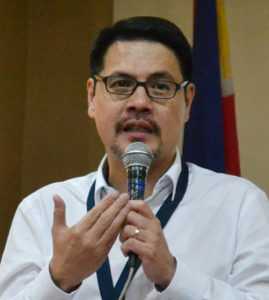
This is the last part of a four-part article outlining the major problems confronting the Philippine Bureau of Customs; the previous efforts to reform and modernize the agency; key issues and concerns that continue to confront it; areas for policy and institutional reforms; and the challenges facing the new administration. This article also provides recommendations for specific policy, regulatory, and operational programs, both in the immediate and the medium terms.
This article was also presented at 11th World Customs Organization Partnerships in Customs Academic Research and Development Conference in Manila from 27-29 September 2016.
Specific Courses of Action
We have outlined below our recommendation for specific courses of action:
- Reorganization and reshuffling of customs frontline personnel;
- Drafting of the implementing rules and regulations of the Customs Modernization and Tariff Act (CMTA) and creation of a Change Management Team;
- Creation of the Technical Working Group (TWG) to examine and develop the automated operating system (i.e. study of AsycudaWORLD or separate program), including its budgetary requirements for submission to the Department of Budget and Management;
- Creation of the TWG for the rationalization of Bureau of Customs’ (BOC) organizational structure, including the drafting of the bill to convert BOC into a government-owned and controlled corporation;
- Streamlining of policies on regulated goods, particularly in facilitating the issuance of import permits;
- Creation of the Forfeiture Fund to raise funds for the automation and custom reforms projects;
- Issuance of joint regulation with Philippine Ports Authority, Manila International Airport Authority and other agencies regulating ports and airports to implement the CMTA provision on customs control of ports and airports;
- Full automation of the export clearance process, including application and issuance of Certificate of Origin for exports;
- Expansion of the Super Green Lane (SGL) program to allow paperless transactions;
- Proposal for a trusted trader program for issuance of import permits;
- Review and issuance of new accreditation rules for consignees, e.g. strict requirements for sole proprietorships;
- Joint Bureau of Internal Revenue-BOC audit of major importers on compliance with VAT payments;
- Creation of the following offices directly under the supervision and control of the Office of the Commissioner, or under any of the Deputy Commissioners, as the case may be:
- Post Clearance Audit Service, which shall include the audit of free trade agreement preferences;
- Large Taxpayers Service, which shall absorb the existing Risk Management Office and Account Management Office;
- Customs Fraud Service, which shall assimilate the existing Run After The Smugglers (RATS) Program, and shall focus on handling fraud investigations involving customs personnel and stakeholders;
- Authorized Economic Operator (AEO) Service, which shall manage the SGL Program and all other trade facilitation and supply chain security programs;
- Central Assessment Service, which shall have among its functions the review of the SGL Program and other paperless transactions in BOC; and
- Central Command Service, which shall handle overall supervision and management of enforcement and border control functions, e.g. nationwide vessel monitoring, etc.
The above proposals are certainly not complete or comprehensive. In spite of the limited resources available, many of these proposals will still be able to address enforcement and revenue collection concerns while promoting trade facilitation.
Conclusion
Philippine Customs is at a crossroads. There is a new government, a new customs administration, and a new law all seeking to modernize and elevate the current state of the customs regulatory and policy environment in the Philippines.
Expectations are high that reform efforts will continue, while striking a balance between enforcement and revenue collection concerns and with the continuing impetus toward international trade facilitation.
Agaton Teodoro O. Uvero is an international trade, indirect tax (customs) and supply chain expert. He provides advisory and training service to most of the top corporations and industry associations. For questions, please email at agatonuvero@customstrade.asia or agatonuvero@yahoo.com.












